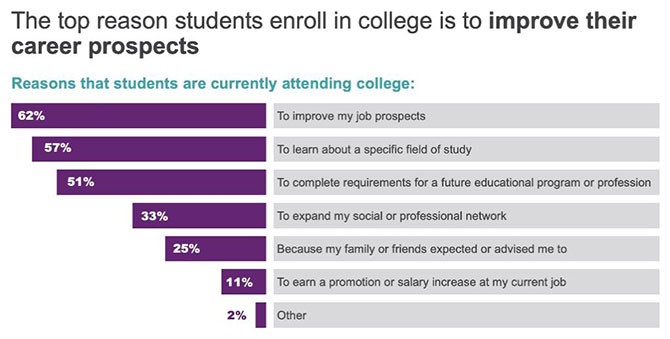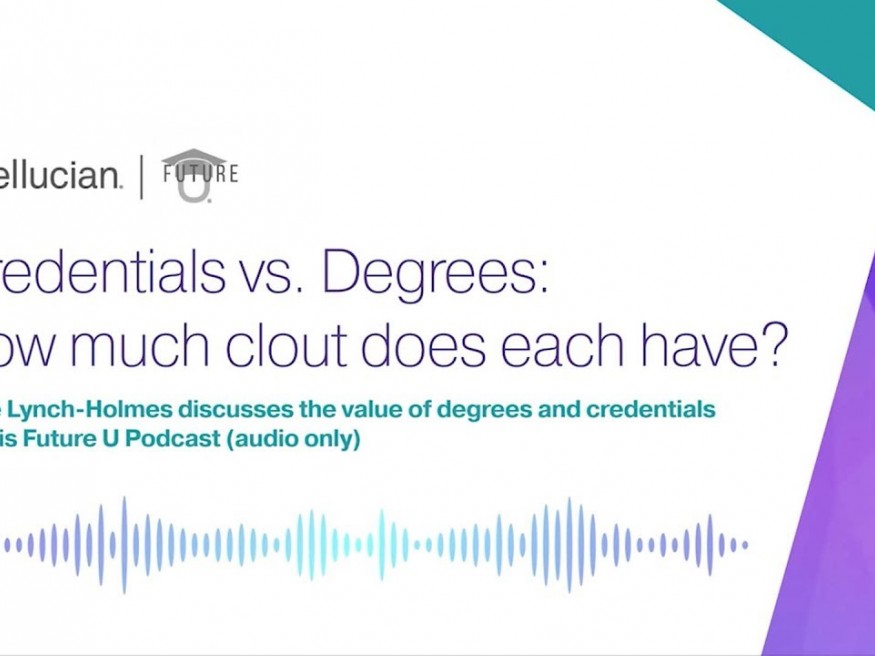Credential clout: How higher ed can prepare for an evolving job market

Student and employer perceptions around the value of college degrees are evolving. Sixty-two percent of students surveyed enrolled in college to improve their job prospects but only 39 percent believe they will be very prepared for the workplace when they graduate.

On the employer side, only a third of entry-level, salaried jobs require a college degree and a quarter of employers will accept credentials in place of a degree. And when asked whether a degree attained or a credential was a better measure of a candidate’s value, recruiters were evenly split.
So how can higher education institutions increase their value to these audiences? Integrating soft skills into their curriculum is one answer. Recruiters and students agree that there is a skills gap, especially around communications and critical thinking. And these soft skills will become even more important as task-based work shifts to machines.
Investing in new business models that provide easily accessible, online, lifelong learning opportunities is another. Eighty-eight percent of students plan to pursue additional education programs or credentials after they complete their current program and almost all students think that earning a credential on top of a degree will make them more specialized in their field.
In this podcast, hear Katie Lynch-Holmes discuss the results from a recent survey of students and employers on the value of a college degree and credentials with Jeff Selingo, author, and Michael Horn, Clay Christenson Institute for Disruptive Innovation. Learn why students enroll in college, how prepared they feel they are for the workplace, and more.
Employers agree. In the next five years, the vast majority of U.S. recruiters believe that credentials will become more important in their company’s consideration of whether to hire someone over a candidate without credentials.
To learn more about student and employer perceptions, including generational differences and implications for higher education institutions, download the full survey results.
